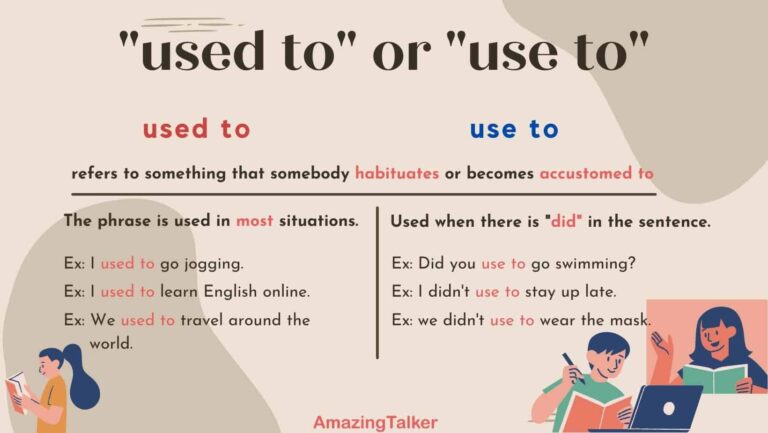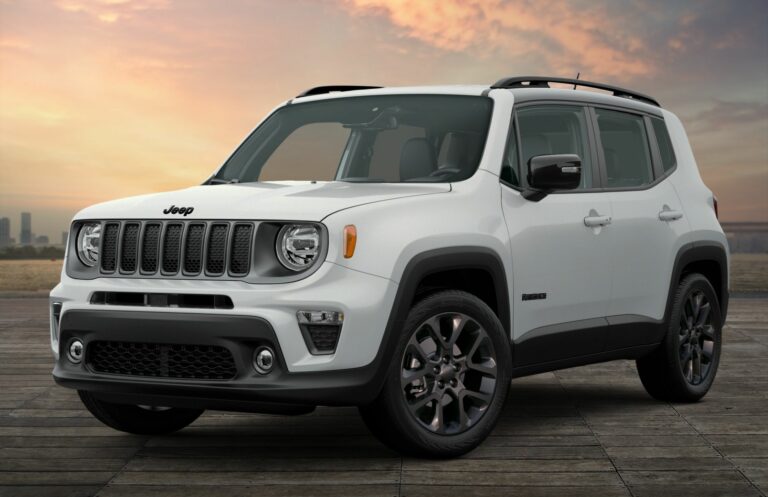Wrecked Jeep Liberty For Sale: Unearthing Value from the Rubble
Wrecked Jeep Liberty For Sale: Unearthing Value from the Rubble jeeps.truckstrend.com
The allure of a budget-friendly vehicle is undeniable, especially in today’s economic climate. For those with a keen eye for value, a willingness to get their hands dirty, or a specific need for parts, the concept of a "Wrecked Jeep Liberty For Sale" opens up a unique and often misunderstood market. Far from being merely scrap metal, a damaged Jeep Liberty can represent a significant opportunity – whether it’s destined to be a donor for another vehicle, a challenging yet rewarding rebuild project, or even a stepping stone into the world of automotive repair and restoration.
This comprehensive guide delves deep into the landscape of purchasing a wrecked Jeep Liberty. We’ll explore why someone would consider such a purchase, the different types of damage to anticipate, where to find these vehicles, crucial considerations before buying, and practical advice to navigate this niche segment of the automotive market successfully. Our aim is to provide a detailed roadmap for anyone contemplating turning a damaged vehicle into a valuable asset.
Wrecked Jeep Liberty For Sale: Unearthing Value from the Rubble
Why Consider a Wrecked Jeep Liberty? Unlocking Hidden Potential
The primary motivation behind buying a wrecked Jeep Liberty is almost always financial. These vehicles are typically sold at a fraction of the cost of their fully functional counterparts, creating various avenues for value extraction.
- Cost-Effective Parts Donor: One of the most common reasons to buy a wrecked vehicle is to use it as a source of parts for another, similar vehicle. If you own a Jeep Liberty that needs a new engine, transmission, body panel, or interior components, purchasing a wrecked one with an intact version of that part can be significantly cheaper than buying new or even used parts individually. This is especially true for larger, more expensive assemblies.
- The Rebuild Project: For hobbyists, mechanics, or aspiring DIYers, a wrecked Jeep Liberty can be the ultimate project car. With enough skill, time, and resources, a severely damaged vehicle can be brought back to life, often resulting in a roadworthy vehicle acquired at a substantial discount. This path offers immense satisfaction and a valuable learning experience.
- Budget-Friendly Off-Road Rig or Trail Beater: If your intention is to build an off-road vehicle that will inevitably see its share of bumps and scrapes, starting with a cosmetically challenged or moderately damaged Jeep Liberty makes perfect sense. The lower initial investment means less worry about adding new scratches or dents during your adventures.
- Learning and Skill Development: Working on a wrecked vehicle provides hands-on experience with diagnostics, repair, bodywork, and even engine or transmission swaps. It’s an invaluable educational opportunity for anyone looking to deepen their automotive knowledge.
- Potential for Profit: For experienced individuals, buying a wrecked Jeep Liberty, performing the necessary repairs, and then reselling it can be a profitable venture. This requires accurate damage assessment, efficient repair work, and a solid understanding of market values.

Navigating the Damage Spectrum: Types of Wreckage and Their Implications
Not all "wrecked" vehicles are created equal. Understanding the different categories of damage is paramount to making an informed purchasing decision.
- Minor Cosmetic Damage: This includes dings, dents, scratches, broken lights, or minor bumper damage. The structural integrity and mechanical components are usually unaffected. These are often the easiest and most affordable to repair, making them ideal for beginners.
- Moderate Mechanical or Body Damage: This category might involve crumpled fenders, damaged suspension components, minor frame damage (repairable), or issues with the cooling system. While more involved than cosmetic repairs, these vehicles can often be restored without excessive cost, especially if the engine and transmission are sound.
- Major Structural Damage (Totaled): Vehicles with severe frame damage, compromised safety cages, or extensive damage to multiple critical systems are often declared "totaled" by insurance companies. Repairing these can be prohibitively expensive, time-consuming, and may compromise future safety. These are typically best suited as parts donors.
- Catastrophic Mechanical Failure: This refers to vehicles with blown engines, seized transmissions, or other major powertrain failures. While the body might be pristine, the cost of replacing these core components can quickly outweigh the savings.
- Flood Damage: Water damage is notoriously insidious. It can lead to electrical issues, rust, mold, and long-term mechanical problems that are difficult and expensive to remediate. Generally, flood-damaged vehicles are best avoided unless you are purely seeking specific, non-electrical parts.
- Fire Damage: Similar to flood damage, fire can compromise structural integrity, wiring, and fluid lines, making repairs complex and potentially unsafe. These are almost exclusively parts-only candidates.
- Vandalism/Theft Recovery: These vehicles might have broken windows, stripped interiors, or ignition system damage. Mechanical components are often intact, making them good candidates for restoration if the cosmetic and electrical repairs are manageable.

Understanding Title Status: A crucial aspect of buying a wrecked vehicle is its title status.
- Salvage Issued when an insurance company declares a vehicle a total loss (repair cost exceeds a certain percentage of its value). These vehicles cannot be legally driven until repaired and issued a "Rebuilt" or "Restored" title.
- Rebuilt/Restored Issued after a salvage vehicle has been repaired and inspected by the state to ensure it’s roadworthy. While legal to drive, a rebuilt title often lowers the vehicle’s resale value and can sometimes affect insurance rates.
Where to Find Your Wrecked Jeep Liberty
The market for damaged vehicles is quite specialized, but several reliable avenues exist:
- Online Auto Auctions (Copart, IAAI – Insurance Auto Auctions): These are the largest platforms for salvage vehicles. They offer a vast inventory, detailed photos, and sometimes even video inspections. Bidding can be competitive, and buyers often need a dealer license or to use a broker.
- Local Salvage Yards/Auto Recyclers: Many junkyards sell entire wrecked vehicles, not just parts. You can often inspect the vehicle in person, and prices might be negotiable.
- Online Classifieds (Craigslist, Facebook Marketplace): Private sellers sometimes list wrecked vehicles, often those they’ve decided not to repair after an accident. Prices can be lower, but "as-is" sales mean buyer beware.
- Towing Companies/Impound Lots: Some companies sell unclaimed vehicles directly, which may include accident-damaged cars.
- Dealerships/Body Shops: Occasionally, these businesses might sell a trade-in or an unrepairable vehicle directly rather than sending it to auction.
Essential Considerations Before Making a Purchase
Buying a wrecked vehicle is not for the faint of heart. Due diligence is critical to avoid costly mistakes.
- Thorough Damage Assessment: This is the most crucial step.
- Visual Inspection: Examine every angle, inside and out. Look for ripples, creases, or misalignment that indicate structural damage.
- Photos/Videos: Request as many detailed photos and videos as possible, especially of the underside and engine bay.
- Damage Reports: Auction sites often provide detailed damage reports. Read them carefully.
- Expert Opinion: If possible, have a trusted mechanic or body shop professional review the damage (even from photos) to give you an estimate of repair feasibility and cost.
- Estimate Repair Costs: This is where many hopeful buyers go wrong. Research the cost of major components (engine, transmission, airbags, frame straightening) and common body panels. Don’t forget consumables like fluids, filters, and small hardware. Factor in potential hidden damage. Always budget for more than your initial estimate.
- Required Skills and Tools: Be honest about your capabilities. Do you have the mechanical skills, bodywork knowledge, and specialized tools (welder, frame machine, diagnostic scanner) required for the repairs? If not, factor in labor costs for professionals.
- Title Status and State Regulations: Understand what a salvage title means in your state regarding repair requirements, inspections, and re-titling processes. Some states have stricter rules than others.
- Vehicle History Report: Even for a wrecked vehicle, a CarFax or AutoCheck report can reveal previous accidents, title washing, or other issues not related to the current damage.
- Market Value of a Running Jeep Liberty: Research what a similar year, mileage, and trim Jeep Liberty sells for in good condition. This helps you determine if the wrecked vehicle’s purchase price plus estimated repair costs will result in a net saving or a loss.
The Buying Process: A Step-by-Step Guide
- Define Your Goal: Are you looking for parts, a full rebuild, or a project car? This will dictate the type of damage you can consider.
- Research Models and Years: Familiarize yourself with common issues and parts availability for the specific Jeep Liberty year you’re targeting.
- Locate Potential Vehicles: Use the resources mentioned above. Filter by year, mileage, and damage type.
- Perform Due Diligence: Thoroughly inspect photos, reports, and history. If possible, arrange an in-person inspection.
- Calculate Estimated Costs: Purchase price + estimated repairs + transportation + re-titling fees.
- Set a Maximum Bid/Offer: Never exceed this number. Emotions can lead to overspending.
- Bid/Negotiate: Participate in auctions or negotiate with private sellers.
- Arrange Transportation: Most wrecked vehicles are not drivable. Factor in towing costs.
- Post-Purchase Steps: Transfer title, arrange storage, and begin the repair process. Keep meticulous records of all repairs and parts.
Challenges and Solutions in the Wrecked Jeep Liberty Market
- Hidden Damage: The biggest risk.
- Solution: Always assume there’s more damage than visible. Budget a contingency fund (15-20% of estimated repair costs) for unexpected issues. Thorough inspection is your best defense.
- Parts Availability and Cost: While Jeep Liberty parts are generally common, specific components can be expensive or harder to find.
- Solution: Research critical part costs before buying. Utilize online part finders, salvage yards, and aftermarket options. Consider buying another minorly damaged Jeep Liberty as a dedicated parts donor.
- Complex Rebuilt Title Process: Varying state requirements can be confusing and time-consuming.
- Solution: Contact your state’s Department of Motor Vehicles (DMV) or equivalent agency before purchasing to understand the exact steps, required inspections, and documentation for obtaining a rebuilt title.
- Lower Resale Value: A rebuilt title will almost always result in a lower resale value compared to a clean-titled vehicle, even if perfectly repaired.
- Solution: Be realistic about the potential resale value. If planning to sell, document every repair with photos and receipts to demonstrate the quality of work.
- Transportation Logistics: Moving a non-running vehicle can be a challenge.
- Solution: Research local towing companies or car transport services and get quotes in advance. Factor this cost into your budget.
Tips for Success
- Start Small: If you’re new to this, begin with a vehicle that has minor cosmetic damage rather than a major structural repair.
- Network: Connect with experienced mechanics, body shop owners, and other DIY enthusiasts who can offer advice or assistance.
- Document Everything: Take photos before, during, and after repairs. Keep all receipts for parts and labor. This is crucial for the rebuilt title process and for demonstrating the vehicle’s condition if you decide to sell.
- Patience is a Virtue: Repairs can take time, especially if you’re doing them yourself. Don’t rush the process.
- Don’t Fall in Love with a Deal: Be analytical, not emotional. If the numbers don’t add up, walk away. There will always be another wrecked Jeep Liberty for sale.
Wrecked Jeep Liberty For Sale: Representative Price Guide
Please note: These prices are highly generalized and will vary significantly based on location, specific damage, year, mileage, trim level, and market demand. They are provided as a broad estimation.
| Year Range (Jeep Liberty) | Approx. Mileage | Damage Level & Type | Estimated Repair Cost Range (DIY Parts) | Salvage Title Purchase Price Range | Ideal Use Case |
|---|---|---|---|---|---|
| 2002-2007 (KJ) | 150,000-250,000 | Minor Cosmetic: Bumper, Fender, Headlight | $500 – $1,500 | $800 – $2,500 | First project, daily driver restoration |
| 2002-2007 (KJ) | 100,000-200,000 | Moderate Front/Rear: Multiple Panels, Radiator Support | $1,500 – $4,000 | $1,200 – $3,500 | Rebuild project, parts donor |
| 2002-2007 (KJ) | Any | Severe Structural/Engine/Transmission Damage | $4,000+ (often uneconomical) | $300 – $1,000 | Dedicated parts donor |
| 2008-2012 (KK) | 100,000-200,000 | Minor Cosmetic: Bumper, Door Ding, Mirror | $700 – $2,000 | $1,000 – $3,000 | Daily driver restoration, budget off-roader |
| 2008-2012 (KK) | 80,000-150,000 | Moderate Side/Suspension: Control Arm, Door, Pillar | $2,000 – $5,000 | $1,500 – $4,500 | Rebuild project, personalized build |
| 2008-2012 (KK) | Any | Severe Frame/Flood/Fire Damage | $5,000+ (often uneconomical) | $500 – $1,500 | Dedicated parts donor |
Note: "DIY Parts" assumes you are performing the labor yourself. Add significant labor costs if hiring professionals.
Frequently Asked Questions (FAQ) about Wrecked Jeep Liberty For Sale
Q1: Is it legal to buy a wrecked Jeep Liberty?
A1: Yes, absolutely. It’s legal to buy a vehicle with a salvage title. However, it cannot be legally driven on public roads until it has been repaired, inspected, and issued a "rebuilt" or "restored" title by your state’s DMV.
Q2: Can I get insurance on a rebuilt title Jeep Liberty?
A2: Yes, you can typically get insurance. However, some insurance companies might be hesitant to offer full comprehensive and collision coverage on a rebuilt title vehicle, or they may charge higher premiums. Liability insurance is almost always available.
Q3: How much money can I realistically save by buying a wrecked Jeep Liberty?
A3: The potential savings can be significant, often 30-60% or more compared to a clean-title vehicle, provided your repair cost estimates are accurate and you can perform much of the work yourself. If you rely heavily on professional labor, the savings diminish rapidly.
Q4: What’s the riskiest type of damage to buy?
A4: Frame damage (especially severe or multiple points), flood damage, and fire damage are generally the riskiest. These types of damage can lead to hidden issues, long-term problems, and safety concerns that are expensive and difficult to fully resolve.
Q5: Do I need special tools to repair a wrecked Jeep Liberty?
A5: It depends on the extent and type of damage. For minor cosmetic repairs, basic hand tools might suffice. For more extensive work involving structural components, suspension, or engine repairs, you may need specialized tools like welders, frame machines, diagnostic scanners, and engine hoists.
Q6: How do I get a rebuilt title after repairing a salvage Jeep Liberty?
A6: The process varies by state but generally involves: 1) repairing the vehicle, 2) keeping detailed records and receipts of all parts and repairs, 3) scheduling a post-repair inspection with the state’s DMV or designated authority, which verifies the repairs and ensures the vehicle is roadworthy and safe, and 4) paying the necessary fees.
Q7: Is it worth buying a wrecked Jeep Liberty for just one or two major parts (e.g., engine or transmission)?
A7: Often, yes. If the cost of buying a used engine or transmission individually is high, and you can acquire a complete wrecked vehicle with a good engine/transmission for less, it can be a cost-effective strategy. You can then sell or scrap the remaining parts of the wrecked vehicle to recoup some of your investment.
Conclusion: A Rewarding Endeavor for the Prepared
The market for "Wrecked Jeep Liberty For Sale" is a testament to the diverse needs and capabilities within the automotive community. For the astute buyer, it offers a unique opportunity to acquire a robust and versatile SUV at a fraction of its market value. Whether for parts, a personal project, or even a profitable venture, the potential is undeniable.
However, this journey is not without its challenges. Success hinges on meticulous research, a thorough understanding of the damage, realistic cost estimations, and an honest assessment of one’s own skills and resources. Approaching this market with patience, a healthy dose of skepticism, and a commitment to due diligence will transform what appears to be mere rubble into a rewarding and economically sound automotive endeavor. Embrace the challenge, and your wrecked Jeep Liberty might just become your next great triumph.





